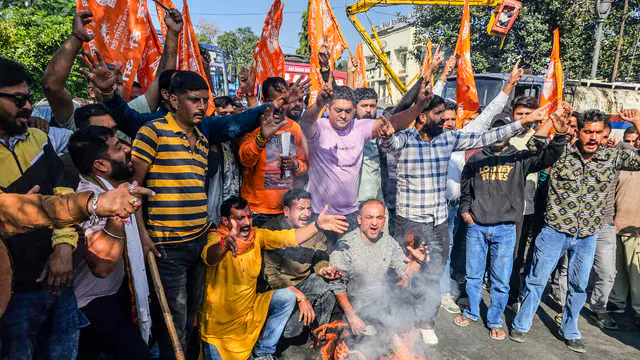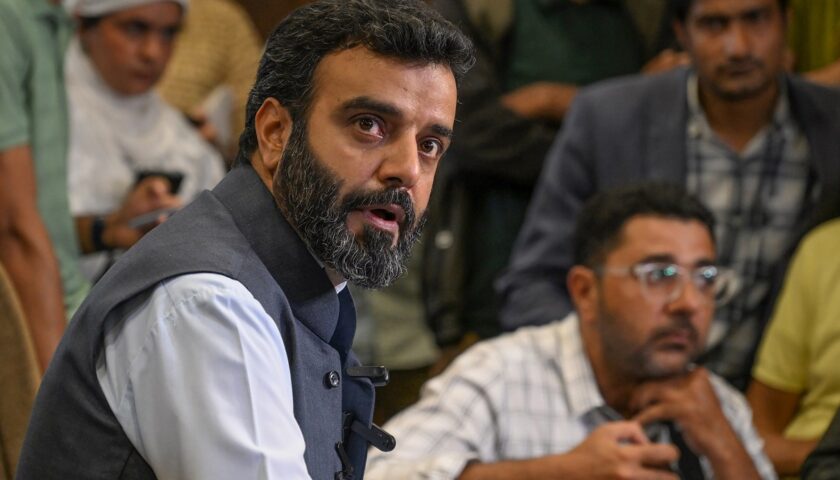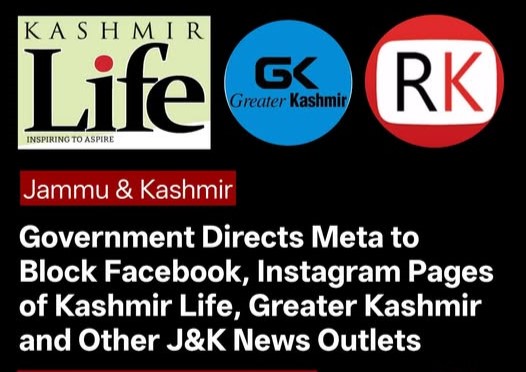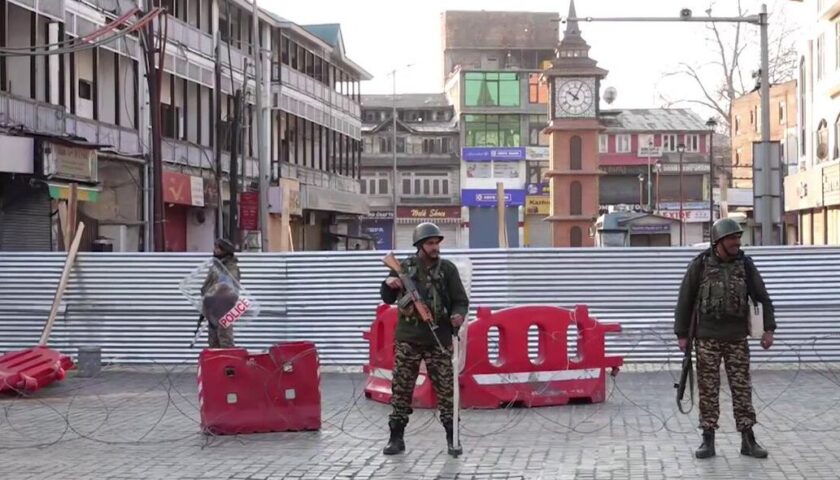Merit or Identity? Vaishnodevi Medical College Admissions Trigger Political Storm as Kashmiri Muslim Students Dominate First MBBS Batch
By: Javid Amin | 20 November 2025
The newly established Shri Mata Vaishnodevi Institute of Medical Excellence (SMVIME) in Katra, Jammu, opened its doors this year with high expectations. Built under the prestigious Shrine Board, the state-of-the-art medical college was envisioned as a transformative institution for healthcare and medical education in the region.
But the release of its first MBBS admission list triggered an unexpected and explosive debate — one that has already spilled into the streets, drawn political involvement, and exposed yet another layer of the region’s delicate sociopolitical balance.
According to the published data, nearly 90% of the students selected in the first MBBS batch are Muslims from Kashmir, all admitted through the NEET merit-based process. What should have been a standard academic selection has now turned into a charged political flashpoint.
What Sparked the Controversy? A Merit List Turns Into a Political Battlefield
The controversy began moments after the college uploaded its first admission list.
Key facts:
-
About 90% of selected students were Muslim candidates
-
A large majority belonged to various districts of Kashmir
-
All admissions followed NEET rankings, as mandated by national medical admission rules
Within hours of the list becoming public, right-wing groups such as the Vishwa Hindu Parishad (VHP) and Bajrang Dal began protesting outside the campus in Katra.
Their central allegation:
“A shrine-funded institution should primarily benefit Hindu students.”
They argued that the Shrine Board, funded largely by donations from Hindu pilgrims, should ensure that Hindu students receive priority access.
This argument quickly triggered concerns about communalizing academic spaces — especially one governed by national medical regulations.
Protests Erupt in Katra: “Admission List Should Be Scrapped”
Demonstrations intensified as activists demanded:
-
Immediate scrapping of the admission list
-
A new list “favorable to Hindu students”
-
Reservation or preferential selection for Hindu applicants
Placards carried statements such as:
-
“Shrine money must benefit Hindu youth”
-
“NEET merit should not override shrine rights”
-
“Kashmiris hijacking Vaishnodevi medical seats”
Protesters were soon joined by BJP MLA R.S. Pathania, who publicly supported the agitation.
He accused the administration of allowing:
“A Shrine Board–funded institute to be dominated by non-Hindu students.”
His remarks added political weight to what was initially a fringe protest.
Official Clarification: “Admissions Were Purely Merit-Based. Religion Played No Role.”
Amid rising tensions, the Shrine Board and college authorities issued a clear, point-by-point clarification:
1. Admissions followed NEET merit strictly
No school, college, or institution in India offering MBBS can deviate from NEET’s centralized ranking system.
2. 85% seats were reserved for local JK residents
— A uniform rule applied across the country.
3. The college is not a minority institution
It cannot legally offer religion-based seats.
4. Reserving seats for any religious group is unconstitutional
Doing so would violate:
-
Supreme Court judgments
-
NMC (National Medical Commission) rules
-
Articles 14, 15, 29 of the Indian Constitution
Authorities emphasized that they had no legal authority to modify admissions based on community or religious identity even if they wanted to.
Why So Many Kashmiri Students? The Performance Gap Explained
This is not the first time Kashmiri students have dominated MBBS seats in the region.
Three major factors explain this recurring trend:
1. Kashmir has a strong NEET preparation ecosystem
Over the past decade, Kashmir has witnessed:
-
A boom in coaching centres
-
High parental focus on medicine
-
A consistent culture of competitive exam preparation
2. Jammu students are more inclined toward engineering
Historically, Jammu sees a higher share of students opting for:
-
Engineering
-
Commerce
-
Management
-
Armed forces paths
3. Kashmiri students regularly outperform in NEET rankings
This makes them more likely to secure top seats in any JK medical college — including the new Vaishnodevi institution.
Thus, what appears controversial on the surface is, in fact, a predictable outcome of performance patterns.
Can a Shrine-Funded College Have Religious Reservation? The Legal Answer: No
Even though the institute is established under the Shri Mata Vaishnodevi Shrine Board, it is still bound by national medical admission laws.
The law is clear:
-
MBBS admissions must follow NEET ranking only
-
No religious quota is permitted
-
No institution can unilaterally create community-based reservation
-
Shrine-funded institutions are not automatically “Hindu institutions” under law
If authorities attempted to favor any religious group, it would be struck down instantly in court.
The Bigger Debate: Meritocracy vs Identity Politics
This controversy is not just about one medical college — it highlights a deeper tension in Jammu & Kashmir.
1. Should shrine-funded institutions prioritize specific communities?
One side argues yes, citing donor identity.
2. Should national educational institutions remain strictly merit-based?
The law, Constitution, and regulatory bodies all say yes.
3. Can educational merit be overridden by identity demands?
Doing so would set dangerous precedents across India.
At its core, the conflict pits:
-
Meritocracy against
-
Religious entitlement claims
This conflict is especially sensitive in a region already marked by identity politics.
Symbolism: Why This Case Feels Bigger Than It Is
This admission row comes at a time when the region is navigating:
-
Political realignment
-
Communal polarization
-
Rising national debates on identity in educational spaces
-
Increasing Kashmiri Muslim representation in academic merit lists
-
Tensions between Jammu and Kashmir regions over resource distribution
In this charged context, a merit-based admission list becomes a symbolic battlefield.
Some activists see:
-
Kashmiris “taking over” a shrine institution
Others see: -
A dangerous attempt to communalize education
The truth lies in the middle — a clash of perception, politics, and public sentiment.
Will This Trigger Policy Changes? What Happens Next
There is growing speculation that:
-
Political pressure may push the Shrine Board to revisit admission rules
-
Activists may file petitions to seek religion-based prioritization
-
Authorities may tighten communication to avoid future controversies
-
More protests may erupt if demands are not met
However, legally, the institute cannot make religious distinctions.
Any such move would be instantly challenged and struck down.
Editorial Analysis: A Test Case for India’s Merit-Based System
This controversy raises important questions:
1. Can education remain insulated from political and religious pressures?
This case tests the boundaries.
2. Should a modern medical college be evaluated by donor identity or academic merit?
The answer determines the future of higher education.
3. Are we prepared for enrollment outcomes that defy public expectation?
Merit does not always align with local sentiments.
4. Will institutions withstand pressure when admissions clash with regional narratives?
Their resilience is crucial for maintaining academic integrity.
The Vaishnodevi Medical College row is not merely an admission issue —
it is a referendum on what kind of education system we want in India.




